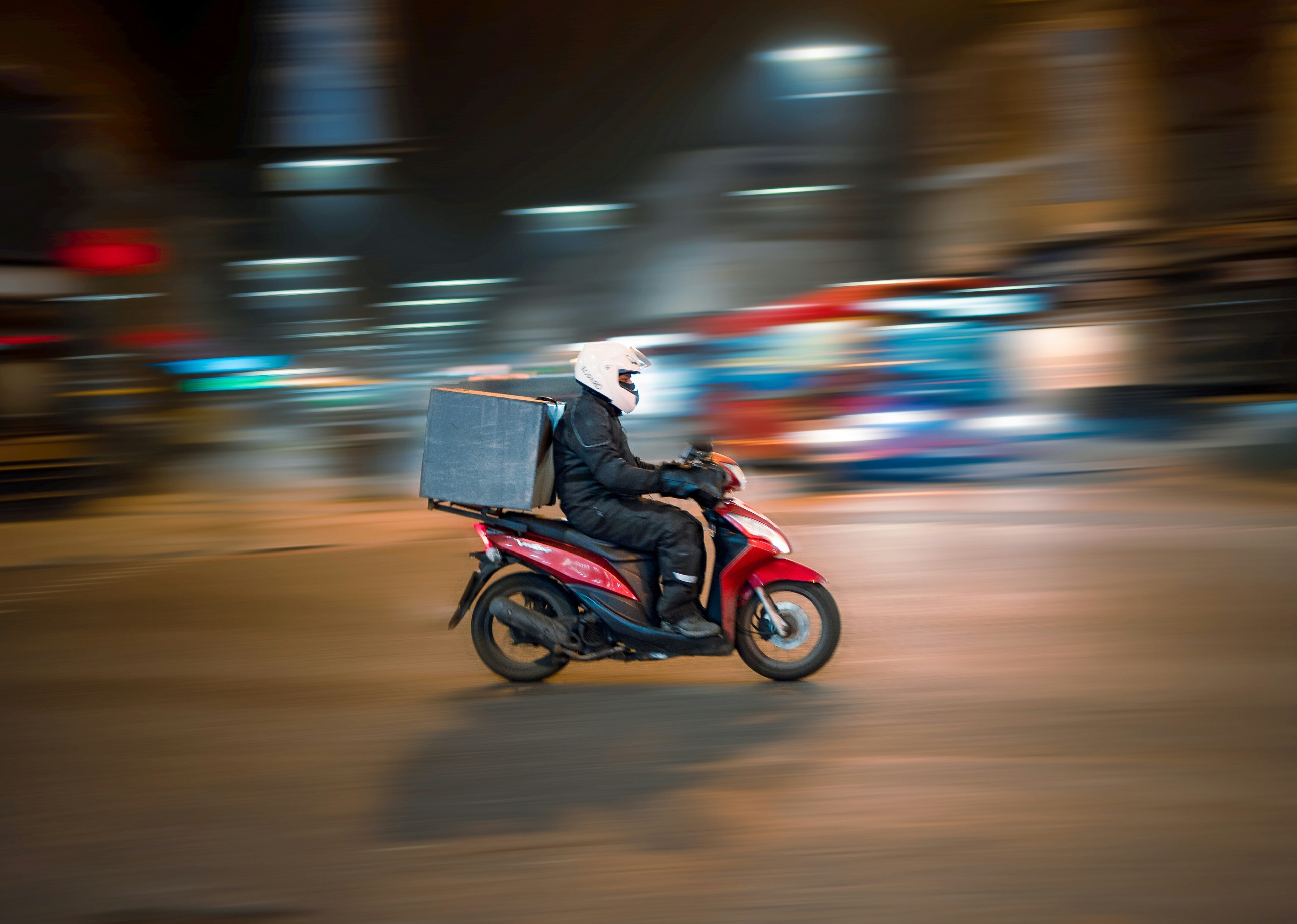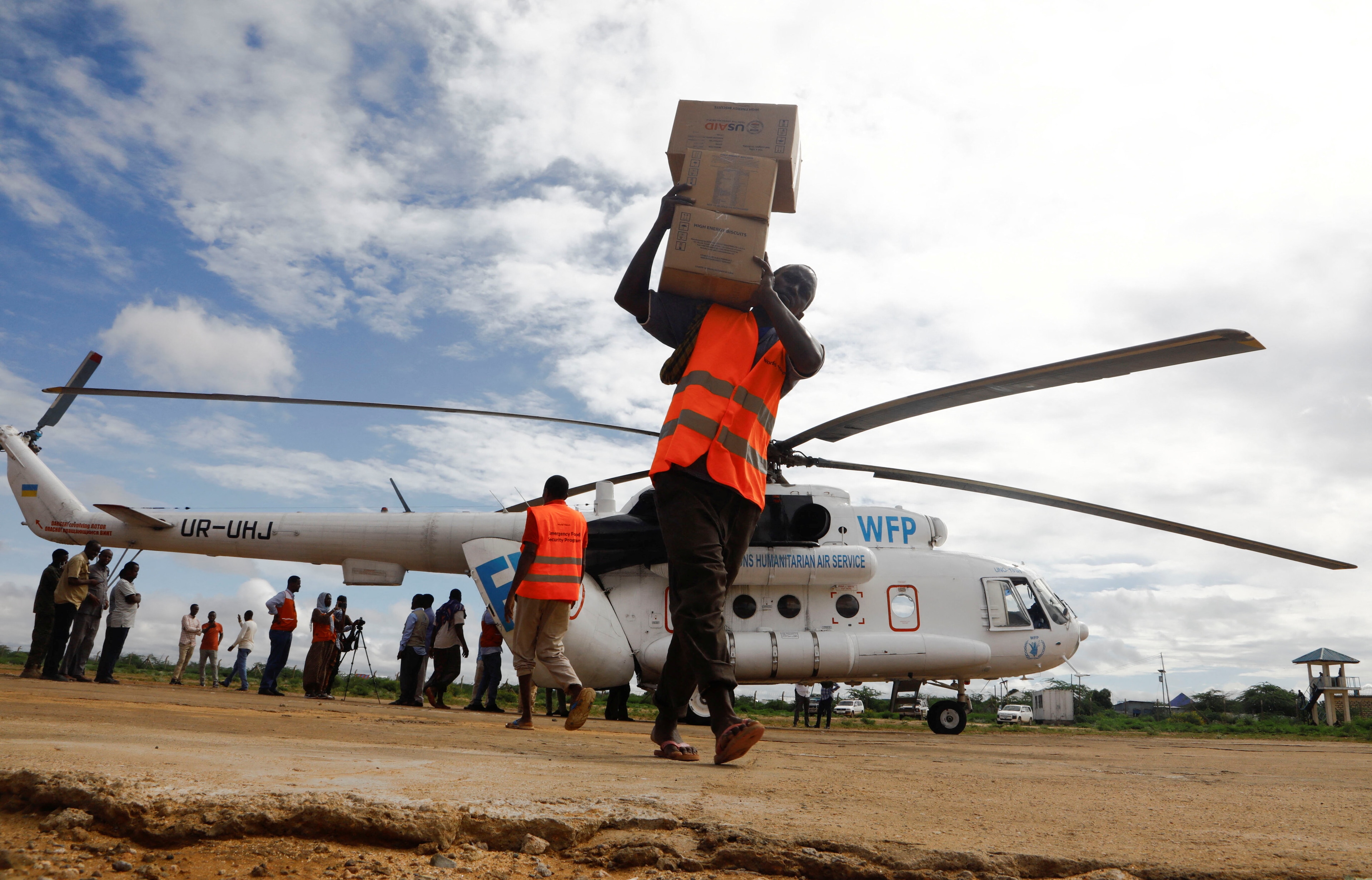See how social entrepreneurs in Brazil are transforming lives

Social entrepreneurs across Brazil are working to help the country's most vulnerable Image: Photo by Leo Wallace on Unsplash
- The COVID-19 pandemic has had a devastating impact on Brazil.
- Social entrepreneurs stepped in to minimise the impact of the pandemic on the country's most vulnerable.
- Here, we look at the difference social entrepreneurs made and continue to make for those most in need in Brazil.
The COVID-19 pandemic has been devastating for Brazil. Three of its biggest challenges were hunger, unemployment and the collapse of its health system. With both public and private sectors overwhelmed, social entrepreneurs across the country stepped up to minimise the effects of COVID-19, especially among the country's most vulnerable communities.
Social entrepreneurs proved more effective during the pandemic
These social entrepreneurs spread throughout a territory of 8 million square kilometres and connected in networks, distributing food, masks, medical and hospital equipment. Social enterprises also proved more agile and effective than the government. They developed emergency cash transfer programs in Brazil at the start of the pandemic to allow for people in favelas to buy food, gas, medicine and emergency supplies, without bureaucracy and queues. This was also crucial to support small businesses, decentralising commerce and the distribution of goods.
Digital health social enterprises and NGOs have become important allies of central and state governments, offering telemedicine as an alternative amidst the public healthcare system collapse. After struggling for years to become a public policy and be adopted by the SUS, the country's public health system, telemedicine models were endorsed by the Ministry of Health on an emergency basis in the midst of the crisis. They became a permanent support to guarantee access to basic healthcare
Transparency, management and logistic tools were necessary to receive large donations (money, food, etc.) during the emergency response. It was a historic moment for private social investment in the country. Over two years, more than BRL7 billion were allocated by the private sector to actions and social organizations on the front line of the pandemic.
What is the World Economic Forum doing to champion social innovation?
Social entrepreneurs across Brazil continue innovating for sustainable and inclusive solutions. They do this by:
1. Empowering Black-owned businesses in Brazil
Approximately 56% of Brazilians, a population of 110 million, are of African descent or are of mixed race. Despite this, the Black population is still considered a niche market and its economy is severely underrepresented. The country has approximately 14 million Black entrepreneurs, of which 82% are not registered in the formal economy. They face structural blocks in accessing professional education, financial resources, value chains and support networks.
Adriana Barbosa started her entrepreneurial journey in São Paulo in 2002 by organizing a fair for Black entrepreneurs. This has since become a major cultural and economic success annually reuniting over 700 exhibitors, 50,000 visitors and a revenue flow of around $800,000 in entrepreneurs’ sales. Festival Feira Preta is the largest event on Black culture in Latin America and an equal opportunity space to showcase and celebrate Afro-contemporary trends in the arts and the creative economy.
Barbosa's organization, PretaHub, acts as an accelerator and incubator of Black initiatives, mapping its business ecosystem, promoting professionalisation through technical and creative education of entrepreneurs, articulating this segment of the economy and opening commercial channels in the country and across Latin America.
2. Fusing hip-hop and art to inspire and educate favela dwellers
Celso Athayde was born in one of the most violent areas of Rio de Janeiro. By the age of 16, he had already lived on the streets and in three favelas. His exposure to hip-hop music dramatically changed the way he saw society. This led him to create CUFA, with the goal of inspiring political awareness among favela residents, mostly people of colour. Currently, the largest non-profit organization focused on favelas in Brazil, CUFA uses hip-hop and sports as tools to help young people formulate opinions about social issues and propose solutions.
In 2013, Celso Athayde also founded Favela Holding, a consortium of 24 companies geared towards social inclusion and the economic empowerment of favelas through the generation of jobs, business opportunities and social entrepreneurship.
3. Revolutionising the concept of waste
In 2010, Brazil produced an estimated 12 million tonnes of plastic. It's the fourth biggest producer in the world behind China, the US and Germany. At the same time, a study found 7.2% of the plastic waste in Latin America and the Caribbean was "mismanaged" – either being littered or disposed of inadequately, meaning it was more likely to wind up in the ocean.
Brazilian materials engineer, Guilherme Brammer, was so frustrated by the lack of adequate recycling he saw in his home city, São Paulo, that in 2011 he created Boomera to find new ways to revive the value in, and reuse, the hard-to-recycle waste products that usually end up in landfill, such as disposable diapers, cigarette butts and coffee pods. The result is post-consumer recycled material (PCR).
This is a revolutionary circular economy business that brings together industry, academia and environmental agents while involving research and development, product design and reverse logistics. To date, it has found solutions for many big companies, including Procter & Gamble, Adidas and Nestlé.
4. Revolutionise healthcare in remote parts of Brazil
In a country where 65 million live in cities with less than one doctor in every thousand inhabitants, SAS Brasil brings access to specialised healthcare to 320 cities in 21 states, with volunteer professionals and cutting-edge technology. Founded by Adriana Mallet, the NGO pioneered the use of telemedicine for cancer patients in 2019 and, with the authorisation of the model by the Ministry of Health in the pandemic, perfected the platform and took it to the peripheries, from Jardim Colombo to Complexo do Alemão, offering remote monitoring against COVID-19. More than 40,000 people were served.
For this, in ten days its structured a platform for online medical and psychological care, with screening and scheduling by WhatsApp. It also installed self-sterilising teleservice booths in communities, with a disinfection system, devices to measure vital signs, medical record electronics and a recipe printer. And, it created the Advanced Telemedicine Unit, a mobile space for gynaecological, dermatological, ophthalmological and dental support. With purpose and innovation as a tool, SAS Brasil leaves the post-pandemic legacy of a complete trail of digital inclusion in health.
5. Creating a prison that gives inmates the keys to their cells to foster rehabilitation
Brazil’s prison population is close to 700,000, one of the highest in the world, beaten only by the US and China. Its heaving under the pressure of an occupancy rate some 165% higher than its structure allows for. Further, the recidivism rate of Brazilian prisoners is also sky-high – around 70%.
Valdeci Ferreira is part of a long-standing mission to change this. He is the director of the Brazilian Fraternity of Assistance to the Convicted (FBAC), a non-governmental, non-profit organization that oversees a private faith-based and privately-owned prison system: the Association for the Protection and Assistance to the Convicted (APAC).
APAC prisons are so radically different to the traditional system, that the inmates are given the keys to their own cells. Concluding that the state system had more or less abandoned its prisoners, Ferreira decided to do something about it. While researching what he could do to effect useful change, Ferreira came across APAC, a form of incarceration that had successfully put prisoners back on their feet.
At its heart, is the idea that everyone is capable of change – given the right opportunities. The results speak for themselves - recidivism ranges between 7% and 20%. The cost to the public purse is one-third of that spent in state prisons.

The Schwab Foundation for Social Entrepreneurship, along with its longstanding partner Folha de S.Paulo, continues to award outstanding social innovators who are transforming systems in Brazil and globally. The 2022 Social Entrepreneur of the Year Brazil recognizes outstanding leaders who are tackling the aftermath of the COVID-19 pandemic and provides them with a global platform to elevate their work. Watch the ceremony here.
Don't miss any update on this topic
Create a free account and access your personalized content collection with our latest publications and analyses.
License and Republishing
World Economic Forum articles may be republished in accordance with the Creative Commons Attribution-NonCommercial-NoDerivatives 4.0 International Public License, and in accordance with our Terms of Use.
The views expressed in this article are those of the author alone and not the World Economic Forum.
Stay up to date:
Brazil
Forum Stories newsletter
Bringing you weekly curated insights and analysis on the global issues that matter.
More on Social InnovationSee all
Michael Fröbel and Stanislas Hillen
August 8, 2025






